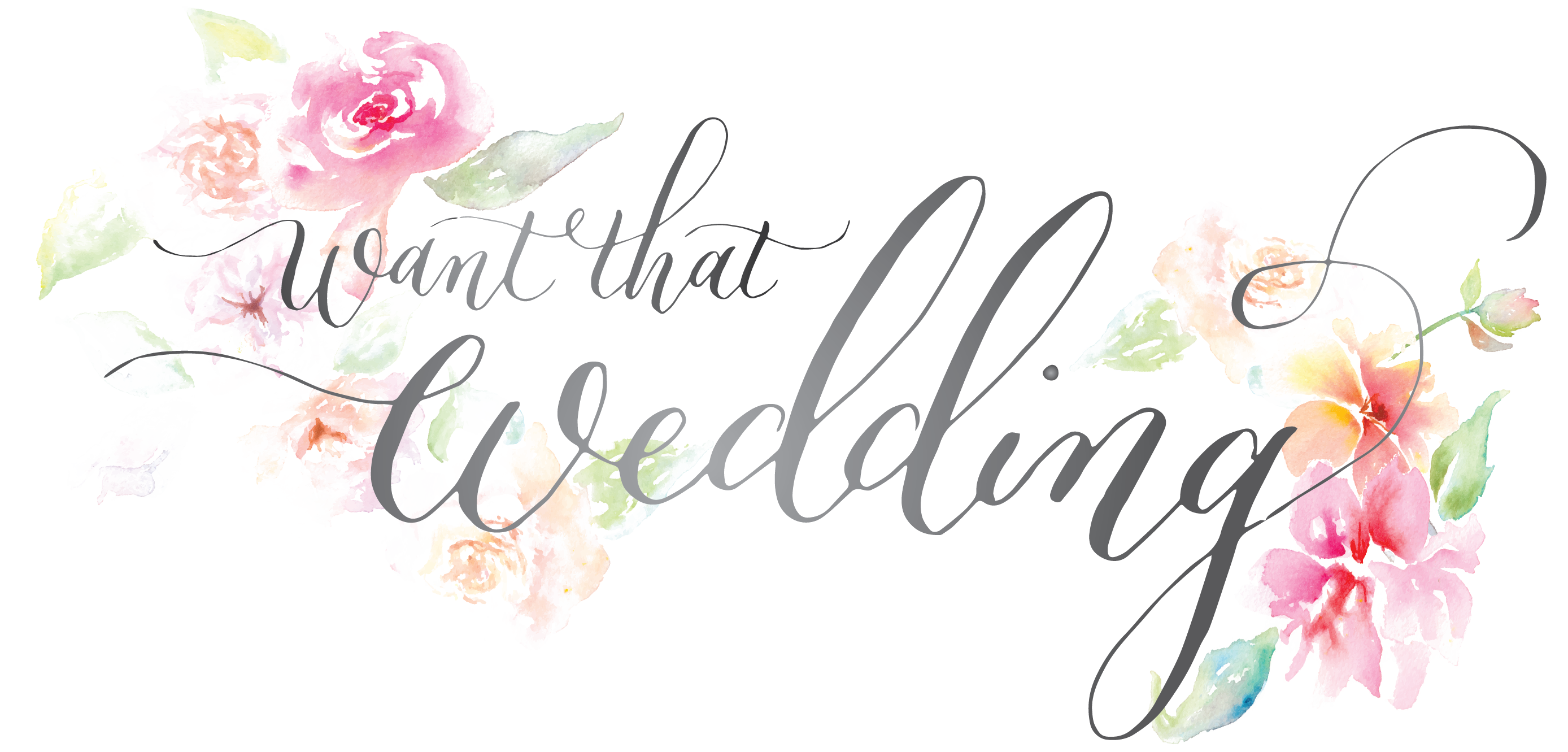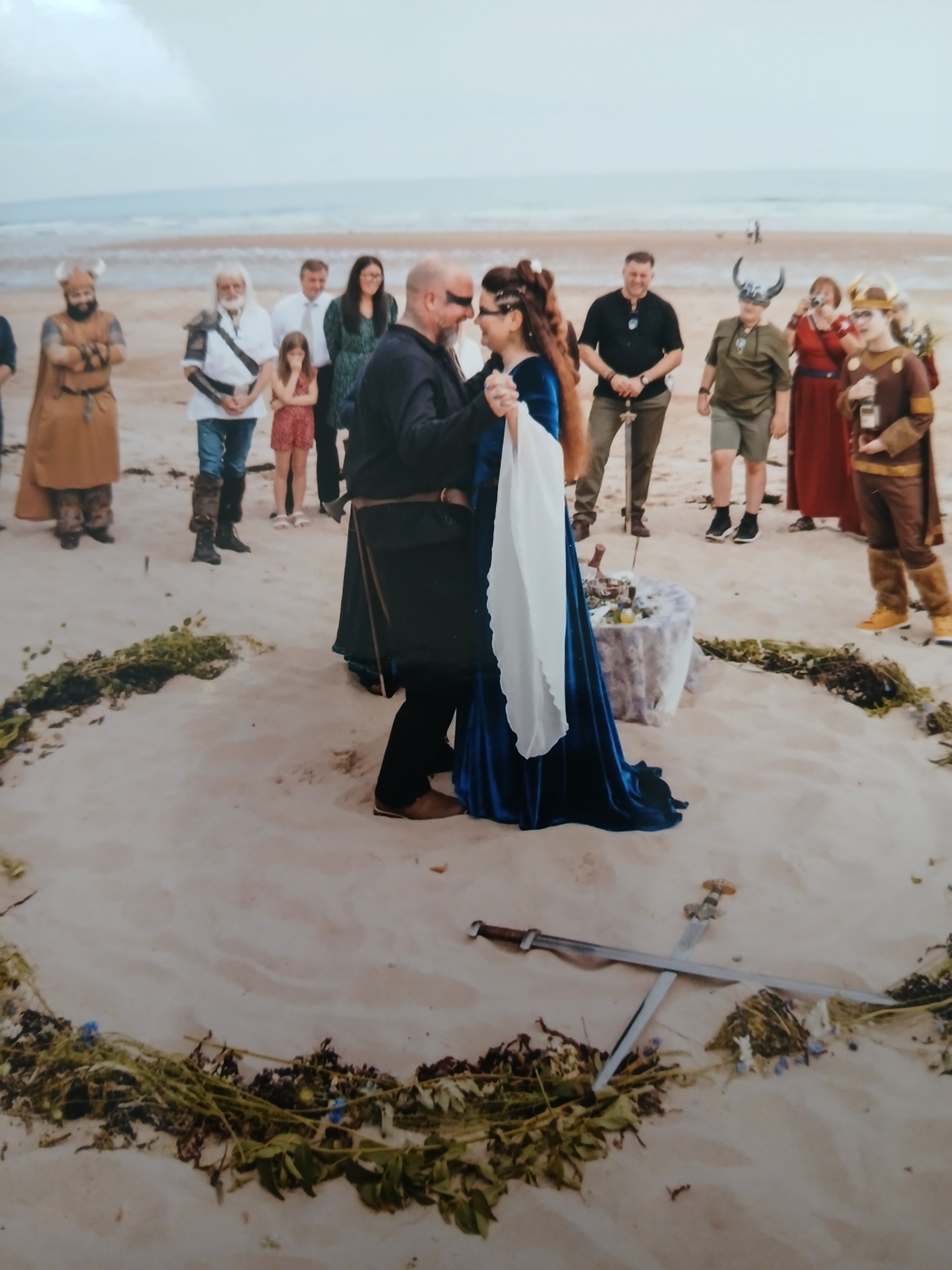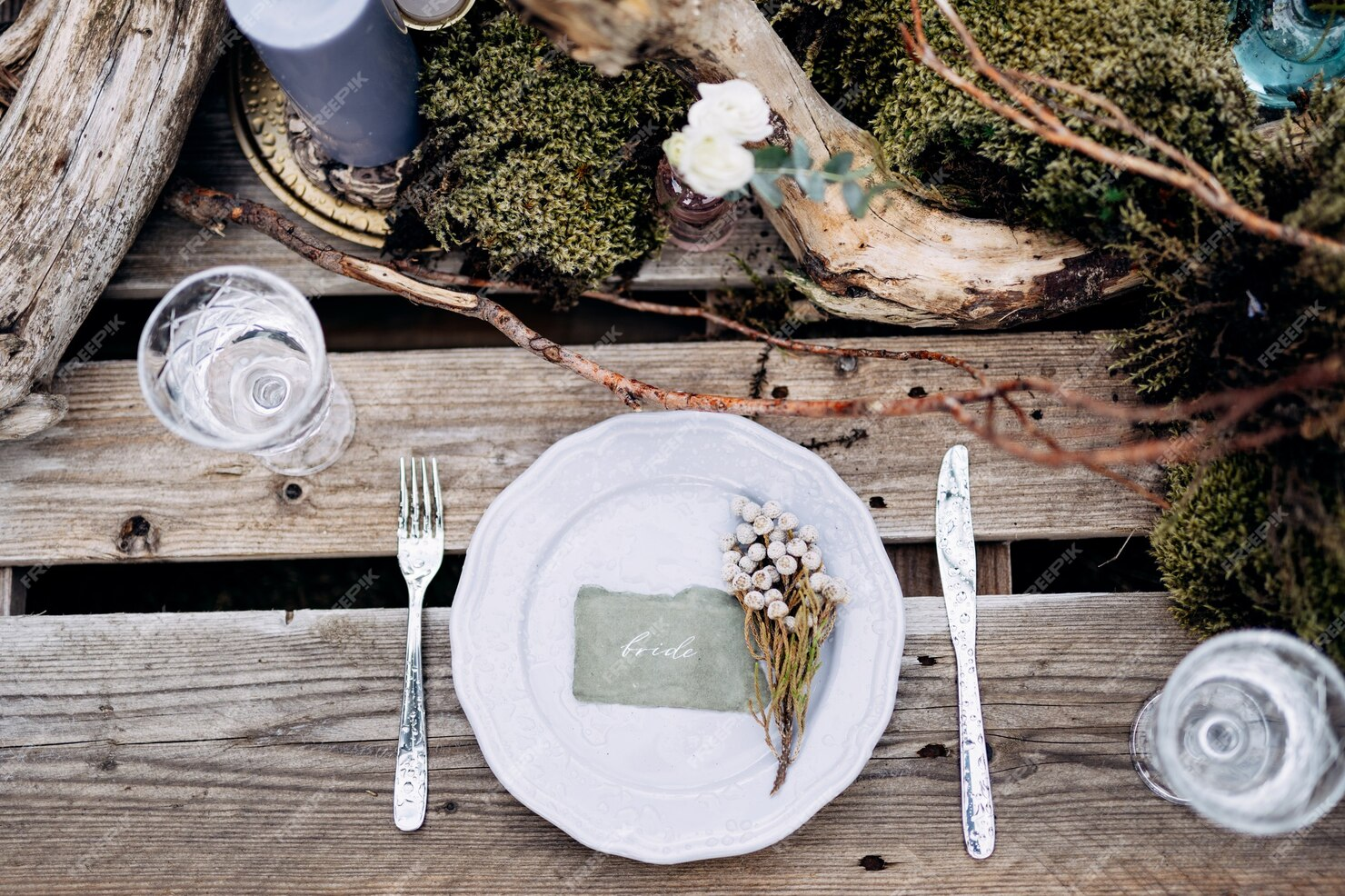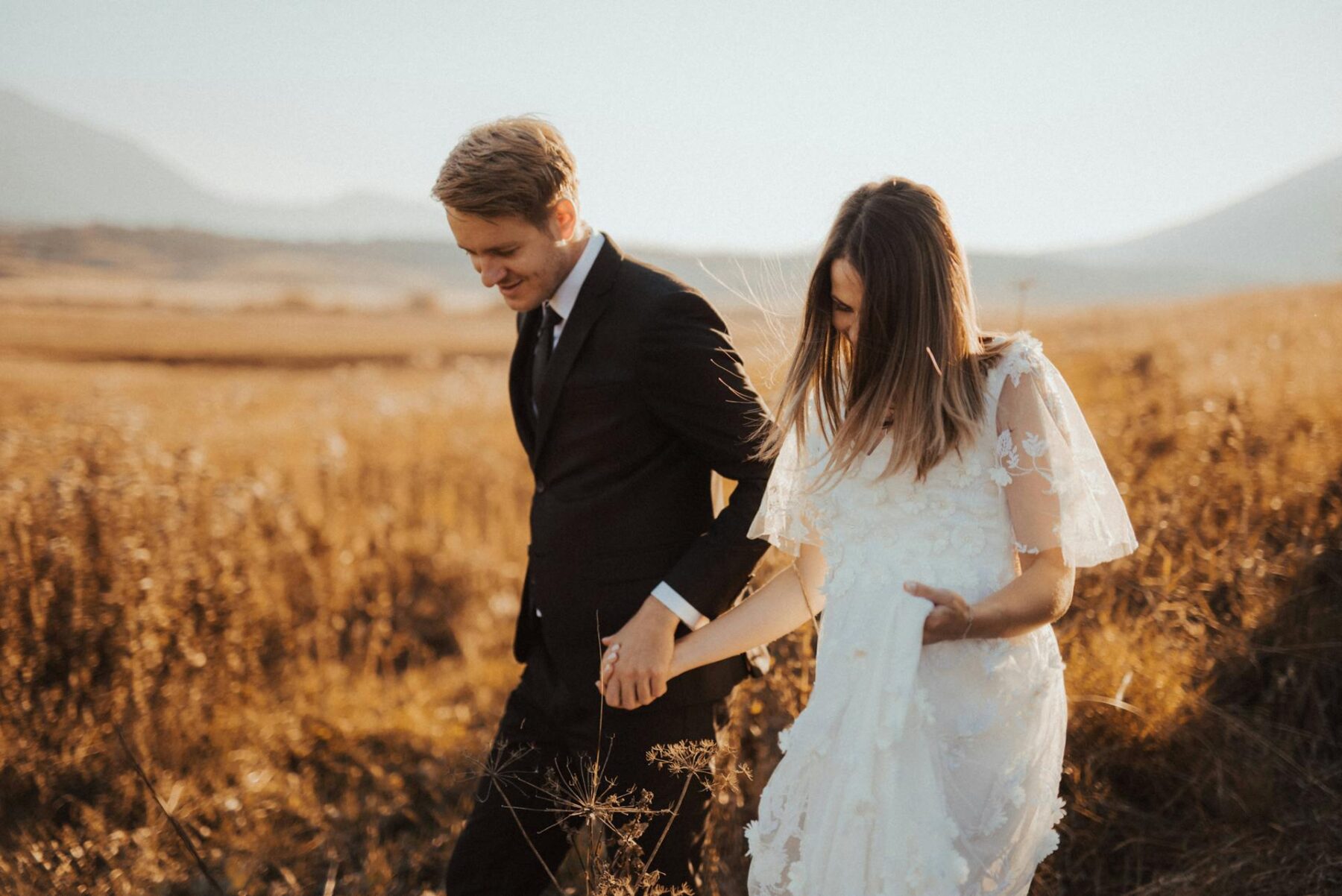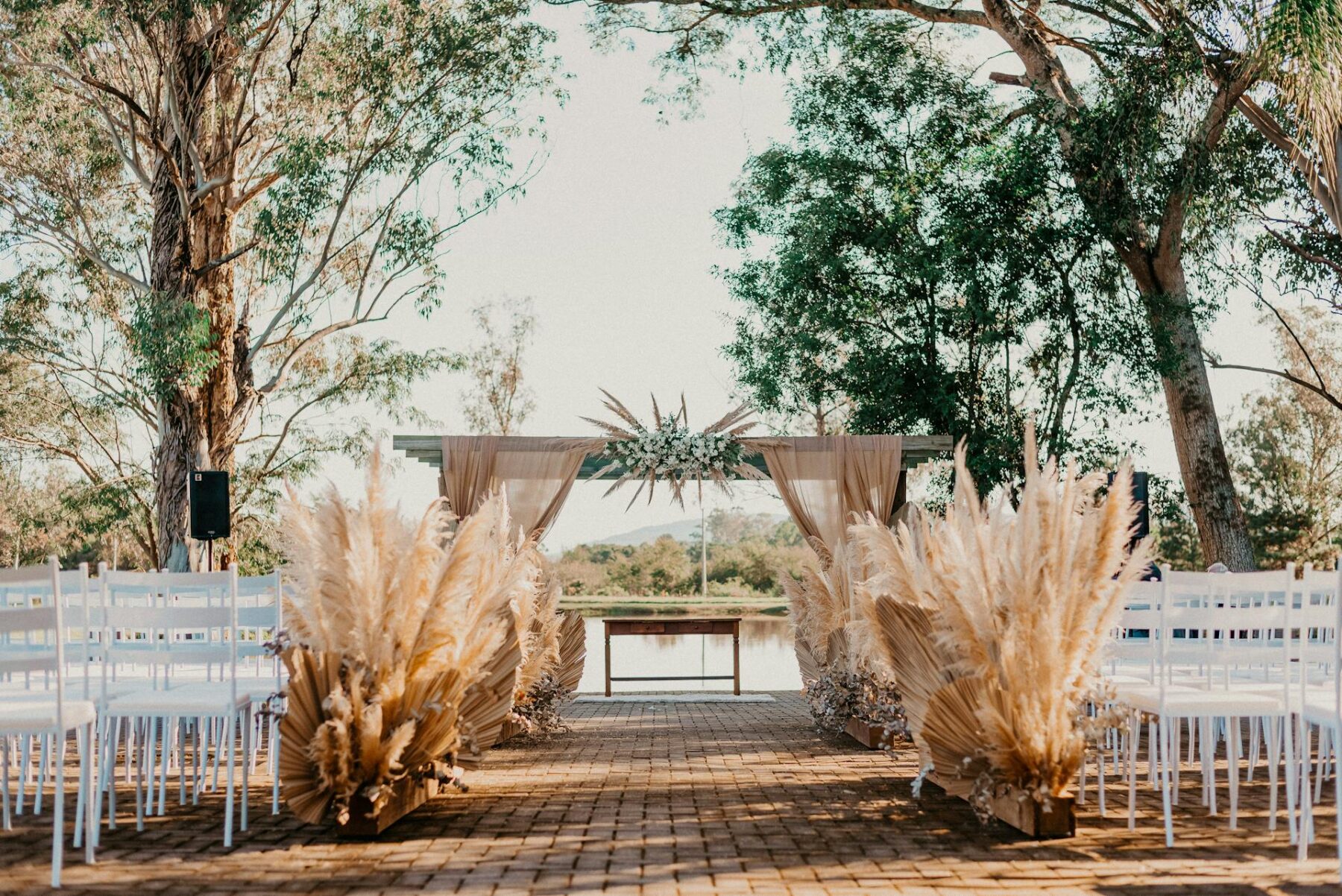I have been creating wedding ceremonies, events and festivals most of my life, but my first wedding was an informal ceremony (without the legal component) in Devon for my niece Aviva and her Marcus. It was a bit wild and unruly; one of the guests got something in his eye and proceedings had to be paused to take him to A and E. I wore a gold velour curtain as a cape and we used the theme of nature, the medicine wheel and a handfasting was performed. The couple left through a tunnel of drummers. They are still together.
Soon after, I was asked to go to the Highland music festival called Belladrum to be the Guidia (Viking Priestess). Along with Samantha, my lovely assistant, we married a few very intoxicated couples. I would not do that now, though; people need to know what they are saying ‘I do’ to. There was a tunnel of Vikings armed with horns, hammers and swords to walk through. Although it was a lot of fun, it also made me think about training.
At the time, I was already active as a healer, medicine woman and shaman. Becoming an interfaith minister, I thought, would be the fourth leg to my stool. We spent the first year living, eating, dressing and praying in 10 different religions. This taught me a lot about my own inherited prejudices. The second year was about all the ceremonies that a person might go through in life. We performed our own baby blessing, coming of age ceremony and house blessing, as well as a wedding, our own funeral and a great deal of counselling. It was a fabulous experience and I can highly recommend One Spirit Interfaith Seminary, if you like the sound of that.
In Scotland, it’s possible to conduct a full legal wedding. Many couples come here from all over the world to marry. What’s more, we have endless amazing natural venues from beaches to castles, both in ruins or like those from a fairy-tale. That’s not all – Scotland is also home to standing stones, rugged mountains, peaceful lochs, caves and tiny student flats!
I went to Iceland to study Viking ceremonies. I didn’t actually learn that much; there isn’t much written about the ceremony itself, but the dowry, however, is fascinating. It comes in three parts: The groom’s parents provide one third of a payment to the bride’s parents, compensating for the loss of the bride’s contributions to her family. In the event the husband is lost during raids or trade journeys, the bride’s parents allocate one third to the bride herself. The groom also gives the bride one third, essentially for the rental of her womb, as she will carry and care for his children. There’s no mention of monogamy anywhere… These dowries could be given as land, and Shetland was the dowry for the prince’s Maid of Norway, who sadly died on the boat over to Scotland. The Viking women had considerable power as they had to look after everything while their husbands were away, meaning they had full decision-making rights.
When performing the Viking wedding ceremony, my husband often acts out the role of ‘Loki,’ the naughty person who steals Thor’s Hammer and has to be dragged back by the ear to give the hammer to the groom. He then gives it to the bride (symbolising power with wisdom). This adds a little bit of light-hearted theatre to make the point. The Viking swords (I have replicas of real Viking swords – they are heavy!), are held up by a family member from each side. They are then crossed and laid in front of the couple, which symbolises the welding of the two clans and the sharing of family honour.
After I was ordained, my first ceremony was for a local couple, and took place in the sand dunes. The mother of the bride was Buddhist, her father was Muslim and she married a Romany Gypsy. They are still together and have two gorgeous boys.
I really enjoy getting to know the couple and writing a ceremony that has meaning and relevance to them. I like to include their community and children if they are present, and to understand that the vows we make to each other are a safety net that can carry us when times are hard. It can also strengthen our very great human quality of committing to love and care for another soul. Whatever our beliefs, our vows matter and they are heard both horizontally and vertically, resonating throughout our lives together.
As an interfaith minister and celebrant, I can create a ceremony that has meaning and is tailored to your stories, ensuring a deeply personal occasion. I perform interfaith or non-faith weddings, as well as Viking ceremonies and handfasting rituals. I would be honoured to help plan your special day!
Author:
Rev. Ocean Graham
O.S.I.F. Interfaith Minister and Celebrant
Scottish Wedding Ceremony
